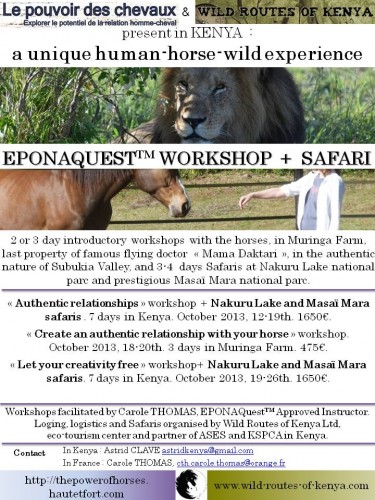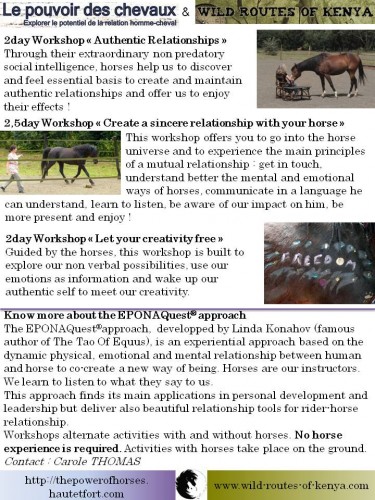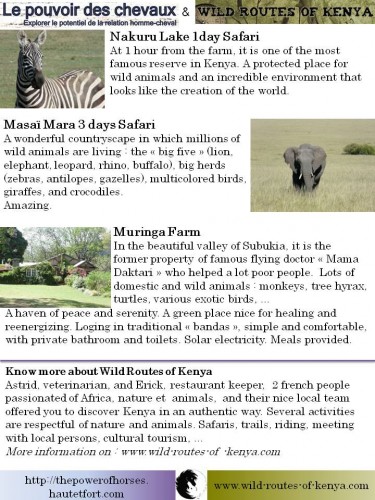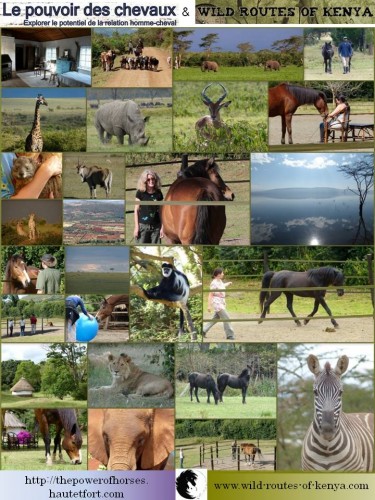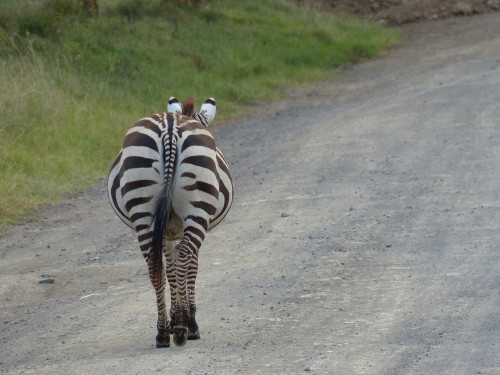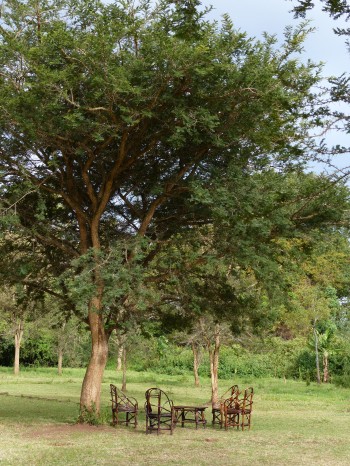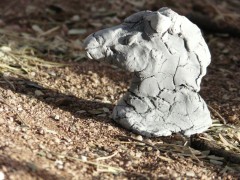
The approach I propose with horses is based on the Epona approach, combined, for riders, with the horsemanship approach.
It aims to explore the potential of human-horse relationship for the benefit of 2!
The EPONA approach is primarily an experiential approach. It includes research on human development and the principles of communicating with and training horses. Horses are considered as our "instructors" and are actively involved in facilitating the learning experienced by humans. We learn to listen to what the horse is telling us. The EPONA approach finds her main application fields in personal development and leadership and also delivers beautiful relationship tools for rider-horse relationship and horse riding conscious.
For riders, my personal approach is to combine EPONA with horsemanship. By combining the two approaches, you consider the horse as a whole being, you learn to take into account information that you refer to yourself in to echo and use the language that corresponds to it.
This approach offers an innovative way to address the relationship with your horse, to connect with him and become partners. This can also greatly change your riding!
Individual sessions and group workshops alternate activities with and without horses. The workshops are defined in relation to the themes identified. Individual sessions are custom built from your goals. The introductory workshops are open to all. Advanced workshops require to have participated in an introductory workshop beforehand. No experience is necessary with horses, activities with horses taking place on the ground (except advanced workshops specifically for riders).
- Learn more about horsemanship

The horsemanship is based on the practical applications of ethology, the science of animal behavior in the wild.
This is about adopting a way of communicatiing with the horse to educate, to teach him things in a language that makes sense to him, a more natural language for the horse and a language he understands.
It is also about understanding his way of learning and his motivation.
And it is often found that our modes are naturally very far! Even realize that there are other ways to run than humans and that they have a real sense!
An example? Look. Humans have eyes on the front face. This allows us to have binocular vision, with great relief, but to see beside or behind us, we have to spin the head. With these features, when we approach someone else, we look in the eyes. Moreover, if we meet someone who does not look in the eyes, a "shifty eyes" as the saying goes, we find it bizarre, it does not inspire confidence ...
For horses, the eyes are on the side of the head. This gives to the horse a very wide view (the horse sees everything that happens on the side without turning his head), however, except in a small place, the vision is monocular, the horse receives excellent movements but less distances and reliefs. The opposite of us. And share the physical layout of the eyes, the horse has a lot of trouble to look at us in our eyes. When he came another horse, he looks both sides, just like a human would not look to another in the eyes ... So when someone approaches a horse by looking into his eyes, the horse will react as if someone approaches us with shifty eyes: the horse will not feel comfortable, he will be potentially suspicious. Normally, all this is explained by the fact that we, as humans, are "predators" in the great pets family. We hunt (hunted!) to eat, so we need to have eyes on the front face to secure our prey. However, the horse is a herbivore prey. He eats grass. He does not hunt, he is hunted. He needs to see wide to identify potential hunters to survive. So he needs to have eyes on the side of the face ...
Another example? The horse has an associative intelligence. We have an analytical intelligence.
And there are many "details" like that. We are usually unaware when they are the pillars of our mode of communication, learning.
The "whisperers", who popularized the horsemanship approach, were called as it because the instructions they use are so small that they are invisible and sometimes the even don't need any classic "tools" (jaw, etc.). Now, they are rather called "new masters" in comparison with the classical equitation riders, the "old masters."
- Learn more about the approach EPONA

The EPONA approach was developed by Linda Kohanov, author of several books : "The Tao of Equus" available in French, "Riding between the worlds", .... Linda has also published "The way of the horse", a card game based on horses archetypes. A fourth book is in preparation and should be published in 2013: "The power of the herd."
This approach can be experienced in the workshops organized by EponaQuest Approved Instructors (4 instructors in France in 2012).
It is primarily an experiential approach in which horses are "our instructors." EPONA approach applied to learning facilitated by horses includes research on human development and the principles of relational and training horses. Horses are considered our "instructors" and are actively involved in facilitating the learning experienced by humans. The EPONA approach finds its main applications in personal development and leadership but also delivers beautiful relationship tools for rider-horse relationship and horse riding conscious.
EPONA programs are based on the dynamic physical, emotional, mental and spiritual relationship between man and horse to co-create a new way of being!
They allow to experiment in the way of horses, our relational modes, the awareness of our body, emotional agility, intuition, assertiveness, creativity and authenticity. And many other talents yet to recover our potential!
In the approach EPONA, horses are our instructors. The behavior of horses and our own reactions to these behaviors can lead, to those who are ready to, powerful realizations about our own abilities and talents.
We have lessons from horses in a theoretical way: taking inspiration from them, including how they are. Horses allow us to reconnect with aspects of ourselves that we have forgotten. With resource and valuable talent.
We also have lessons from horses in a practical way : by experiencing, enjoy their instant reactions to face our behavior. Acting as mirrors and focusing on our non-verbal expressions, they allow us to become aware of a belief, a behavior, a way of acting. As we learn to test, experiment and discover new ways of doing and being.
Specifically for riders, horses show us what is the way that suits them best. That energizes, which makes them quiet, etc.. Learn by experimenting.
Address this specific approach without a specific goal allows to explore, expand and deepen our connection to life. Linda Kohanov says in this case that "our inner wisdom guides the flow of our progress on our individual personal path."
For more information, please read the "Discover the power of horses" of the website and visit the Linda Kohanov website www.eponaquest.com .
